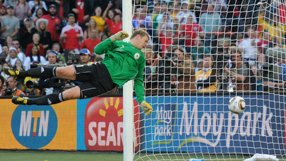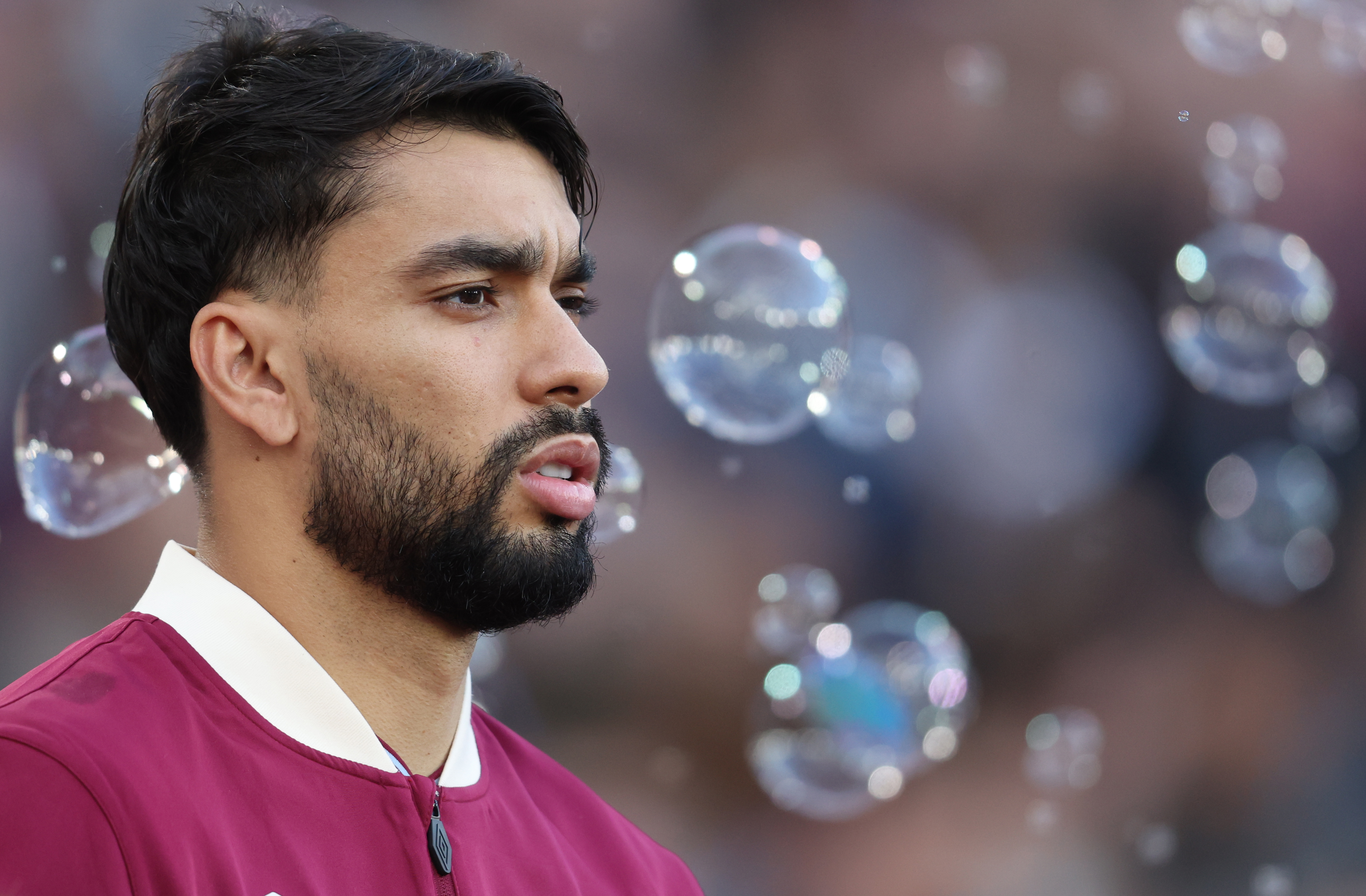
While other sports have happily embraced the use of video replays or infrared systems to review goals and other close calls, earlier this year football's governing body ruled out the use of any such system for the foreseeable future.
The issue came into sharper focus than ever after decisions, shown by instant replays to be incorrect beyond any reasonable doubt, altered the balance of Sunday's two World Cup second round matches.
First it was a shot from Frank Lampard that clattered against the German crossbar and bounced down well over the line when England, chasing a comeback, were 2-1 down. Germany, clearly rattled at the time, went on to win 4-1.
In the later game at Soccer City, Mexico had been enjoying the better of the game against Argentina when Carlos Tevez scored from a clearly offside position, setting Diego Maradona's side on their way to a 3-1 win.
FIFA spokesman Nicolas Maingot was in an uncomfortable position on Monday when asked for a response.
He was unable to do anything but refer reporters to recent statements from FIFA President Sepp Blatter, who reiterated his opposition to the use of technology after the sport's lawmaking body decided against its introduction in March.
"The game must be played in the same way no matter where you are in the world," Blatter said on FIFA's website. "The simplicity and universality of the game is one of the reasons for its success.
The best features, fun and footballing quizzes, straight to your inbox every week.
"No matter which technology is applied, at the end of the day a decision will have to be taken by a human being. This being the case, why remove the responsibility from the referee to give it to someone else?"
Critics among fans, players and coaches may argue that in certain cases, Sunday's games among them, giving the responsibility to someone else would lead to a more accurate decision.
TRACKING THE BALL
Tennis and cricket are among the sports to have happily introduced infrared systems to track the ball, while rugby, NBA basketball and American football use video replays.
The current debate in MLB baseball is not whether the limited use of video to check questionable home runs should be scrapped but rather expanded to cover the sort of mistake that denied Armando Galarraga a perfect game.
At the Olympics, freeze-frames help decide places on the track, Formula One motor racing uses video and technical analysis to make calls long after the race is over, often affecting the results, and the list of sports embracing technology goes on and on.
By no means all World Cup players support the idea of using video evidence or other technology with some believing that luck evens itself out over time.
Germany midfielder Sami Khedira, who played in the England game, told a news conference: "We are quite happy the way it is because in the long run these things get balanced out. It's all part of the game and part of the emotion."
Plenty of people involved in the sport would clearly welcome it, however, including Khedira's team-mate Miroslav Klose.
 Join The Club
Join The Club





